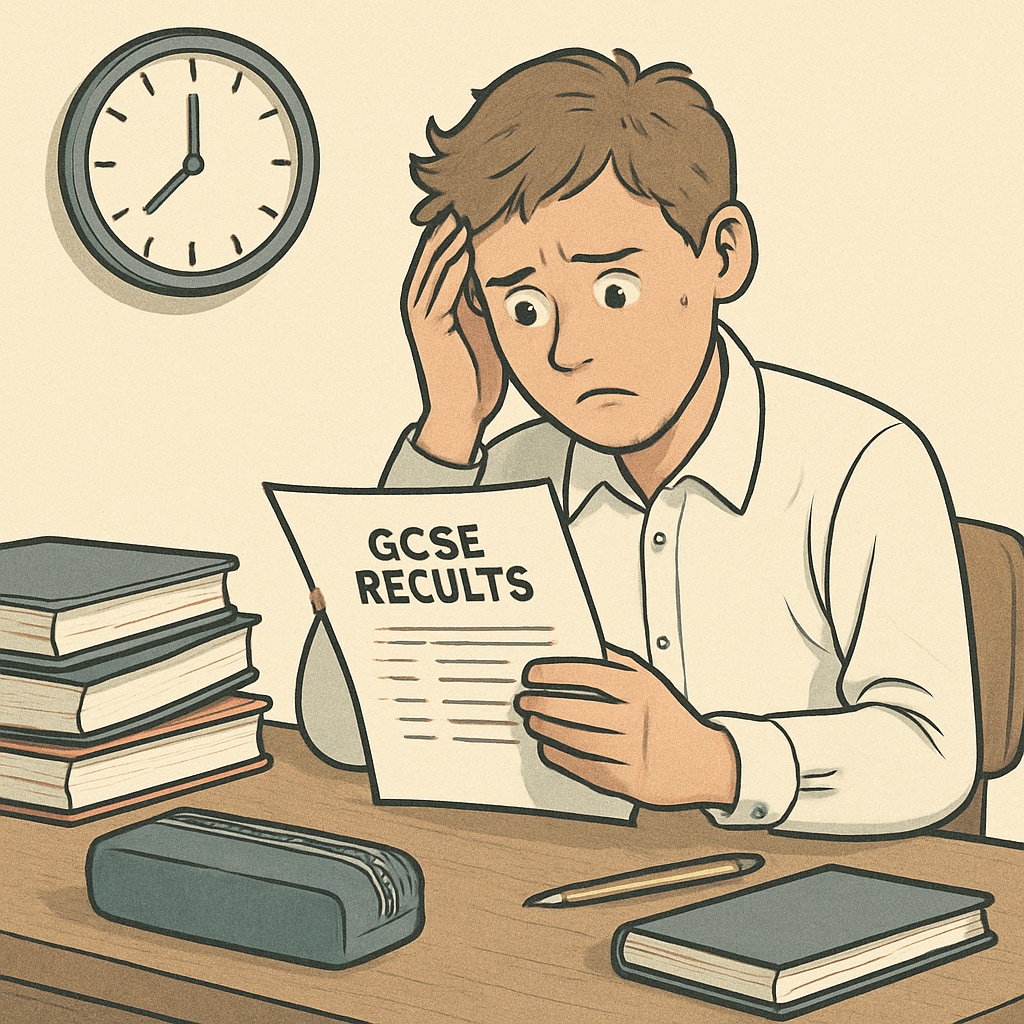For many students, the period leading up to and following the release of GCSE results is fraught with academic anxiety. The pressure to perform well in these exams, seen as critical milestones in the British education system, can overshadow the broader picture of personal development and future career prospects. While exam results hold value, this hyper-focus on grades often neglects alternative educational paths and the diverse definitions of success in a rapidly evolving world.

Breaking Down the Anxiety Surrounding GCSE Results
The General Certificate of Secondary Education (GCSE) exams are widely regarded as a pivotal moment in a young person’s academic journey. However, the weight placed on these results often leads to intense academic anxiety. Students worry not only about their immediate performance but also about how these grades could shape their long-term career prospects.
Studies have shown that excessive stress around exams can lead to mental health challenges, including heightened anxiety, depression, and burnout. For instance, a BBC report revealed that one in four students experiences significant stress during exam periods. This pressure is compounded by societal expectations, where success is often narrowly defined as achieving high grades.
It’s essential to recognize that academic anxiety doesn’t just affect underperforming students. Even high achievers can feel overwhelmed by the fear of failing to meet their own or others’ expectations. As a result, the educational system inadvertently promotes a culture where self-worth is tied to exam performance.
Expanding the Definition of Success
The traditional emphasis on GCSE results as the ultimate measure of academic achievement fails to capture the diverse talents and interests of students. Success, particularly in the 21st century, should encompass a broader range of skills and experiences. Critical thinking, creativity, emotional intelligence, and adaptability are just as vital as academic knowledge for thriving in today’s world.
For students who struggle with exam-based assessments, alternative educational paths can offer a more fulfilling route. Vocational training, apprenticeships, and creative fields provide opportunities to excel in areas not assessed by traditional exams. For example, organizations like City & Guilds offer industry-recognized qualifications that focus on practical skills and hands-on learning.

Building Resilience and Self-Worth Beyond Grades
To address the impact of academic anxiety, schools, parents, and policymakers must work together to foster resilience and promote self-worth beyond exam performance. Here are some strategies to consider:
- Encouraging a Growth Mindset: Teach students that failure is a natural part of learning and that their worth isn’t defined by a single exam.
- Providing Mental Health Support: Schools should offer counseling services and stress-management workshops, particularly during exam seasons.
- Highlighting Diverse Career Paths: Career guidance programs should emphasize the value of alternative pathways, such as vocational training or entrepreneurship.
- Celebrating Non-Academic Achievements: Recognize and reward accomplishments in sports, arts, volunteering, and other extracurricular activities.
By implementing these strategies, we can help students understand that success is multi-dimensional and deeply personal.
Looking Beyond GCSE Results and Towards the Future
While GCSE results are an important milestone, they do not define a student’s entire future. The modern workforce values a range of skills and attributes that extend far beyond academic performance. Employers increasingly seek candidates with strong communication skills, adaptability, and the ability to work collaboratively—all of which can be cultivated through diverse educational experiences.
Ultimately, the goal of education should be to empower students to lead meaningful, fulfilling lives. By shifting the focus away from exam results and fostering a more inclusive definition of success, we can help young people navigate their academic and career journeys with confidence and resilience.
As students and their families face the challenges posed by GCSEs, it’s essential to remember the bigger picture: success is not a one-size-fits-all concept. With the right support, alternative pathways, and a healthy perspective, every student can carve out a rewarding future.
Readability guidance: This article uses short paragraphs, actionable advice, and clear transitions to ensure accessibility. Lists and external links are included to enhance understanding.


